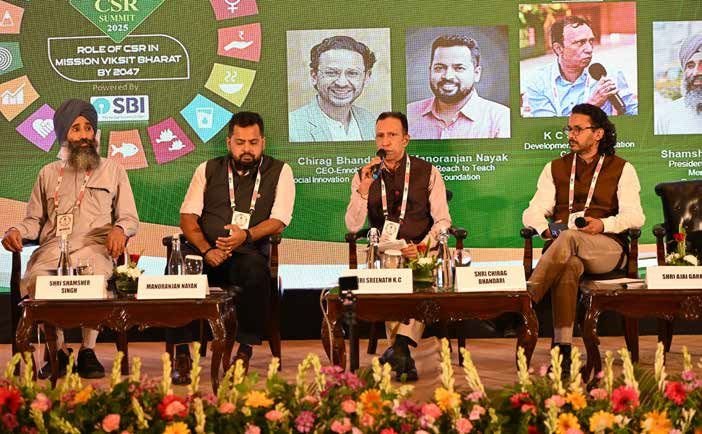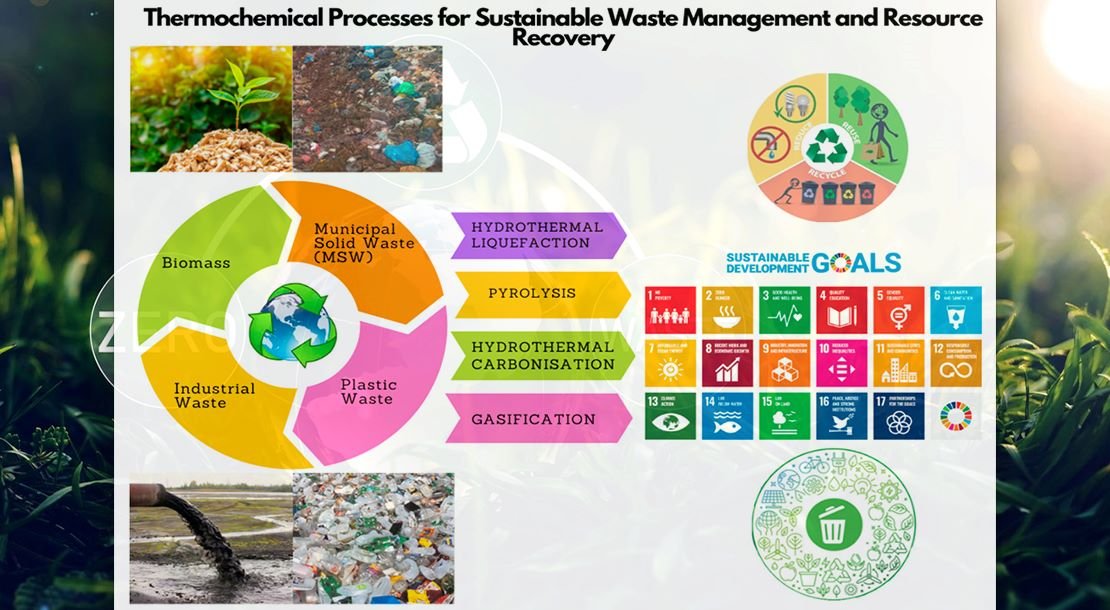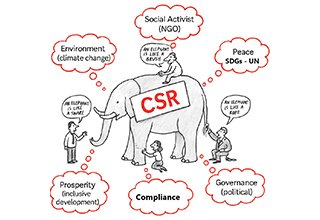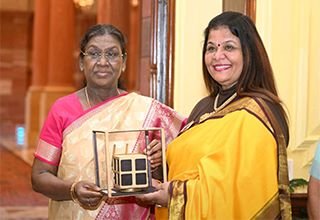
As India ascends the ranks to become the third-largest economy in the world, it faces a paradox: impressive GDP growth coexists with underwhelming performance in key social development areas. During the recently concluded 12th National CSR Summit, the panel discussion on the “Role of Social Entrepreneurs and Organisations in Nation Building,” moderated by Mr. K C Sreenath – Development Communication Consultant – had the experts deliberating on this disconnect, highlighting the role of grassroots efforts, CSR initiatives, and policy- level interventions in bridging this gap.
According to the SDG Report 2025, India ranks 99th globally in social development, despite climbing nine places since the previous year. This reflects progress, but also reveals how much work lies ahead — particularly in sectors like healthcare, education, clean energy, and climate action. With international development aid shrinking due to global conflicts and instability, there is an urgent need for Indian corporates, civil society, and social enterprises to take the lead.
Education: A Cornerstone for a Developed India
Education emerged as a central theme in the discussion. Mr. Manoranjan Nayak – ED, Reach to Teach Foundation – an education sector expert, pointed out the declining enrollment in government schools — from 72.9% in 2022 to 66.8% in 2024. This shift to private institutions reflects parental aspirations for better quality education but raises concerns about inclusivity and continuity, especially for low-income families.
Nayak emphasized that 53% of Indian students — about 124 million — study in government schools. These children represent the country’s future workforce and social capital. However, learning outcomes remain dismal. For instance, only 55% of Grade 3 students can arrange numbers up to 299, and just 53% of Grade 6 students can perform basic multiplication. “These are not isolated figures but systemic issues affecting students from Grade 1 to 12,” he warned. Nayak stressed the need for contextualized curricula, competent teachers, and systemic reform to improve foundational literacy and numeracy — critical for achieving the Viksit Bharat vision.
Beyond Syllabus: Competency-Based Learning
Mr. Chirag Bandhari – CEO, Ennoble Social Innovation Foundation – who champions Competency-Based Education (CBE), argued that rote learning has stifled creativity and critical thinking in both private and public schools. He explained that CBE encourages students to apply knowledge in real-life situations — fostering skills such as problem-solving, collaboration, and adaptability.
“While enrollment has increased, the real challenge is whether students can use their learning meaningfully,” he said. Bandhari also highlighted a critical point: most school assessments still focus on memorization rather than comprehension or application. “We must transition to systems that assess and reward real competencies, not just grades.”
On the issue of school dropout rates, he noted a sharp decline in retention after primary school. While 98% of children enroll at the primary level, only 67.6% continue to upper primary and beyond. The reasons range from disengaging content and language barriers to poor infrastructure and lack of community awareness.
Bandhari called on social organisations to lead by example. Citing a successful project in rural Pune where a local teacher transformed his school into a model institution, he demonstrated how such local success stories can ripple across communities, inspiring both students and teachers to aim higher.
Geriatric Care and Mental Health: The Neglected Frontiers
Shifting from education, Mr. Shamsher Singh – President (Founder Member), Prabh Aasra – addressed the rapidly growing elderly population. According to UN projections, by 2050, over 20% of India’s population will be above 60. Currently, 11% of Indians are seniors, and a staggering 70% of them are dependent on others.
Nearly 78% suffer from chronic conditions, and many lack pensions or health insurance. “The government is still grappling with basic services like education and primary healthcare,” Singh observed. “Geriatric care and mental health have largely been left to the private sector.”
He emphasized the need for targeted CSR projects and public-private partnerships to address elderly care, health infrastructure, and mental wellness. With 10.6% of adults reportedly suffering from mental health disorders — and a 90% treatment gap — mental health remains a deeply neglected issue.
Conclusion: A Shared Responsibility
The panel concluded with a call to action: Nation-building cannot rest solely on the government’s shoulders. Social entrepreneurs, corporate CSR arms, and non-profits must collaborate to fill the widening gaps in health, education, and social welfare.
Whether it’s revamping the education system, supporting the elderly, or tackling mental health stigma, the responsibility is collective. India’s development story must be inclusive — not just in economic terms, but in how it uplifts every section of society.
Only then can the vision of Viksit Bharat become a lived reality.


















